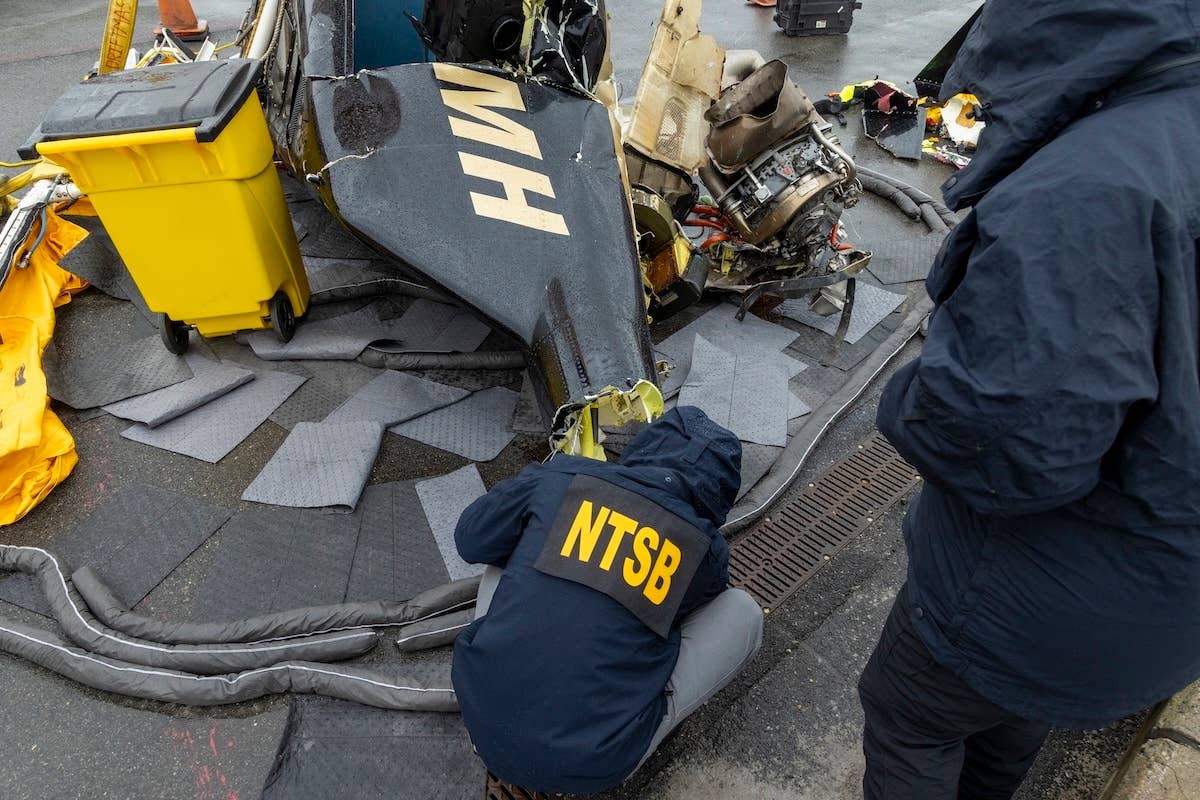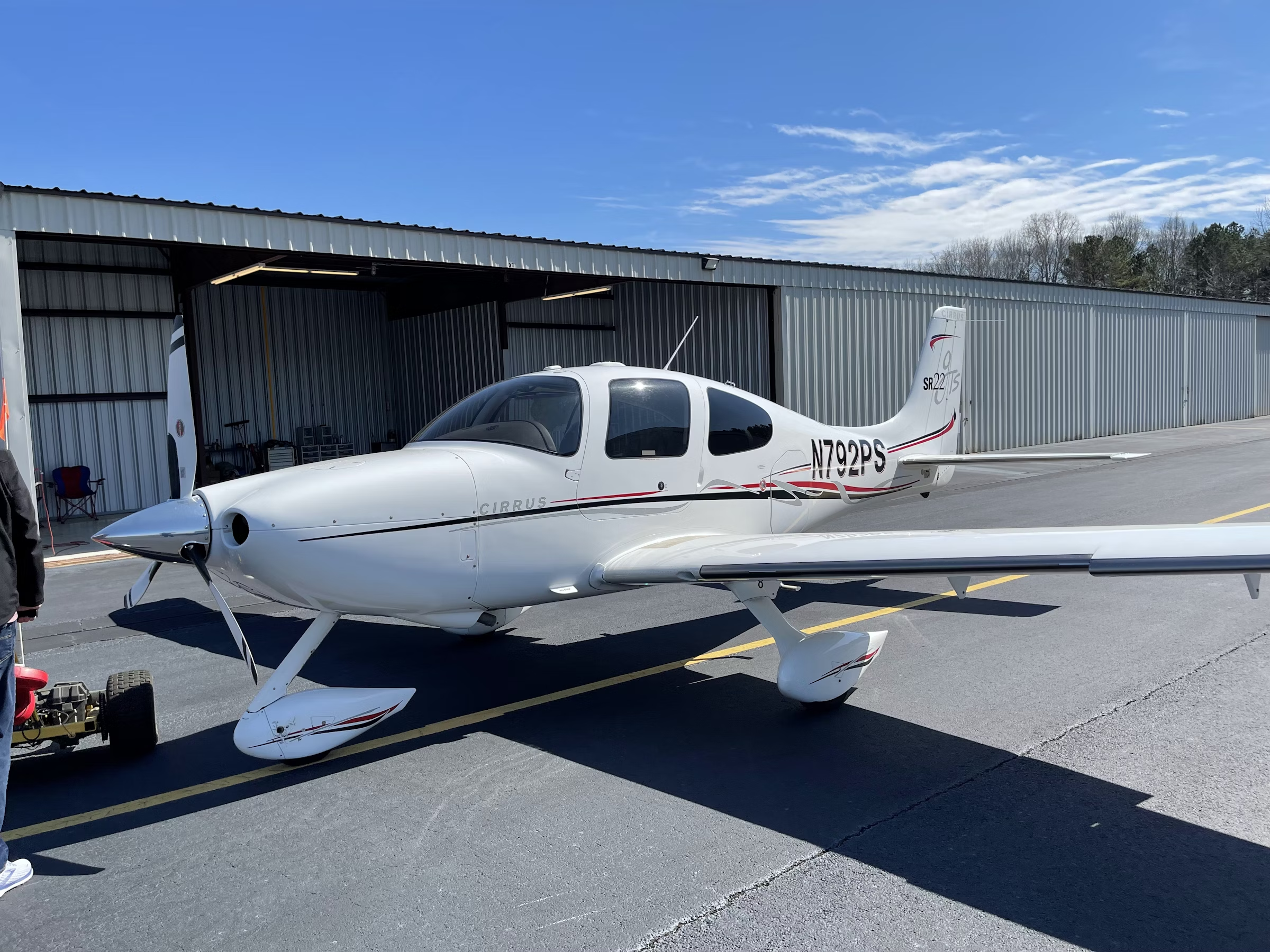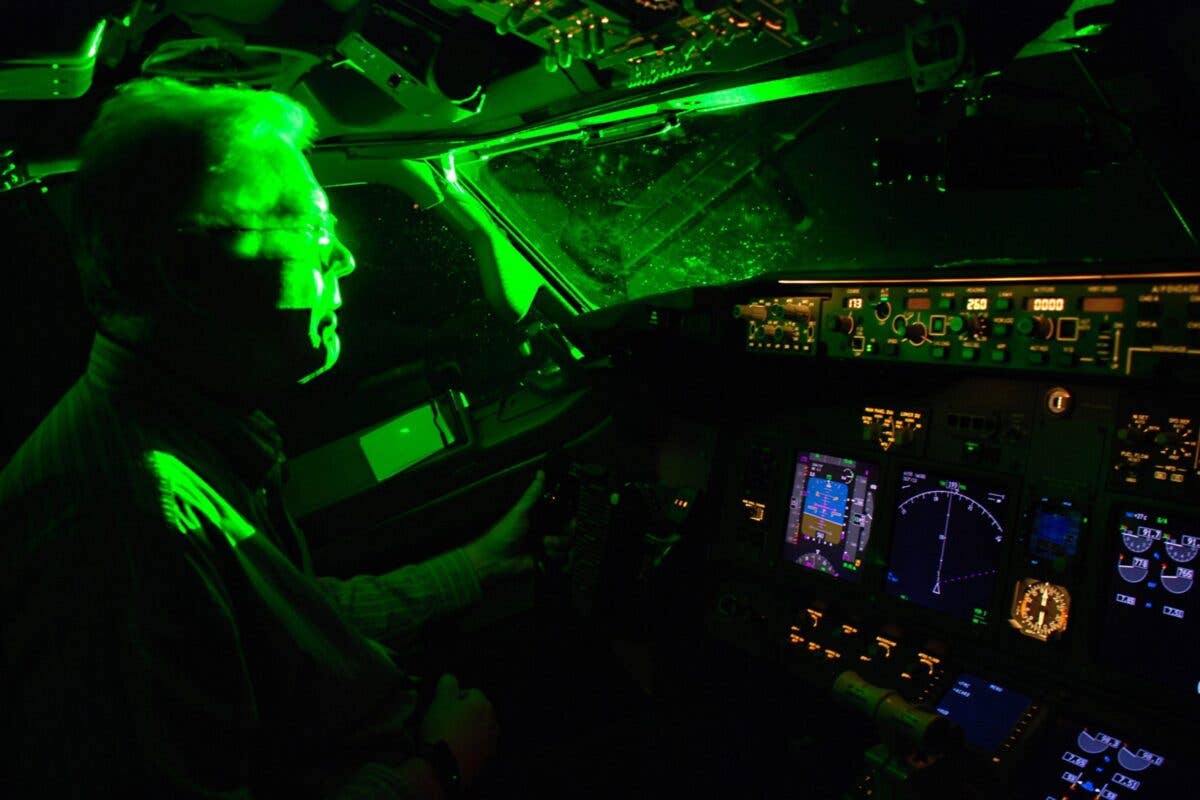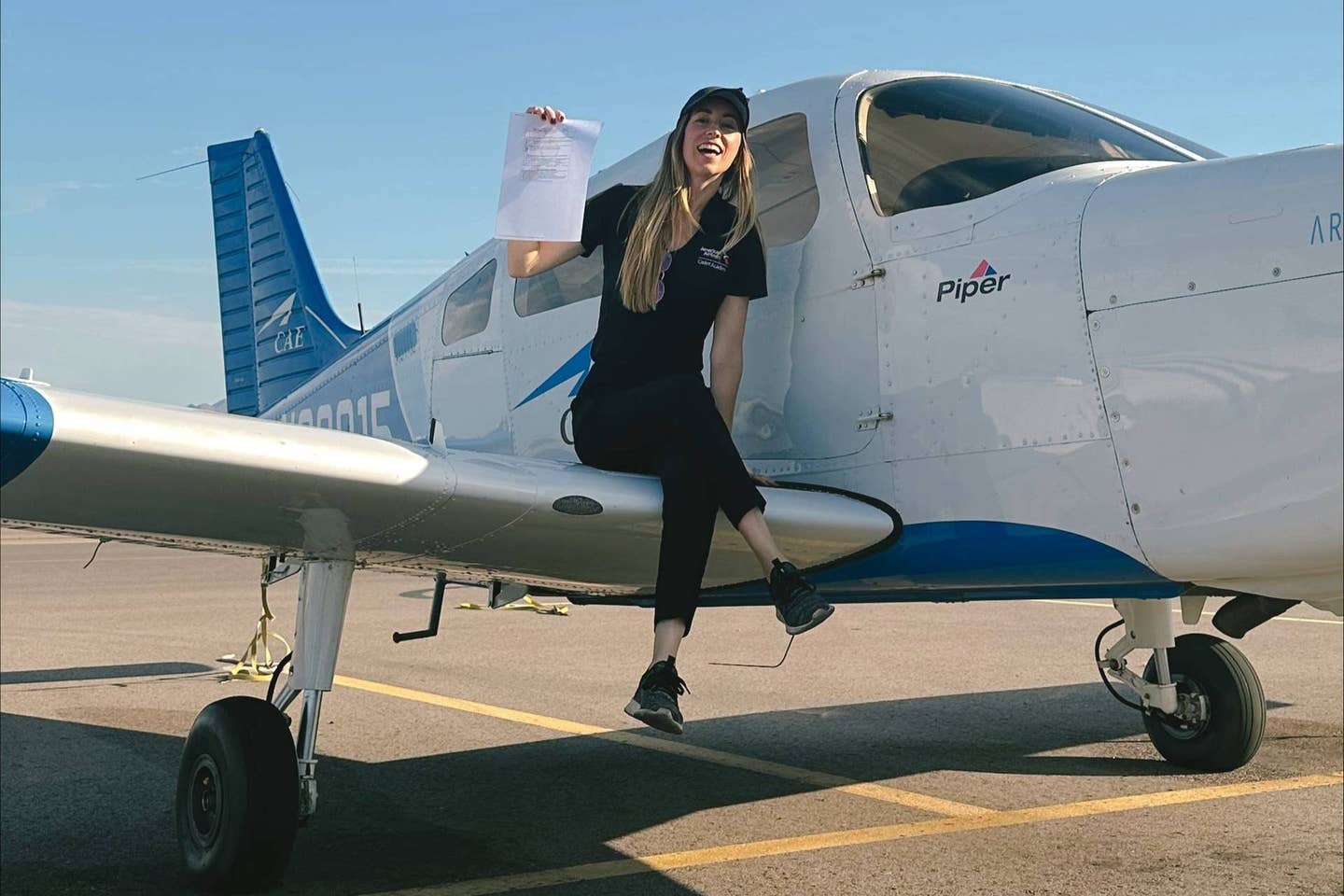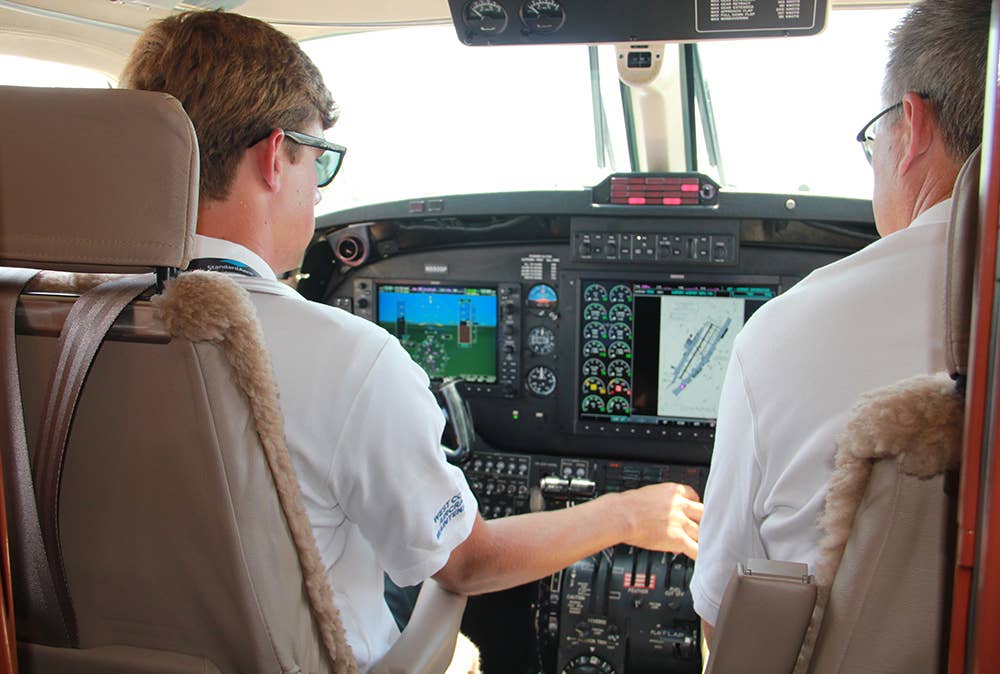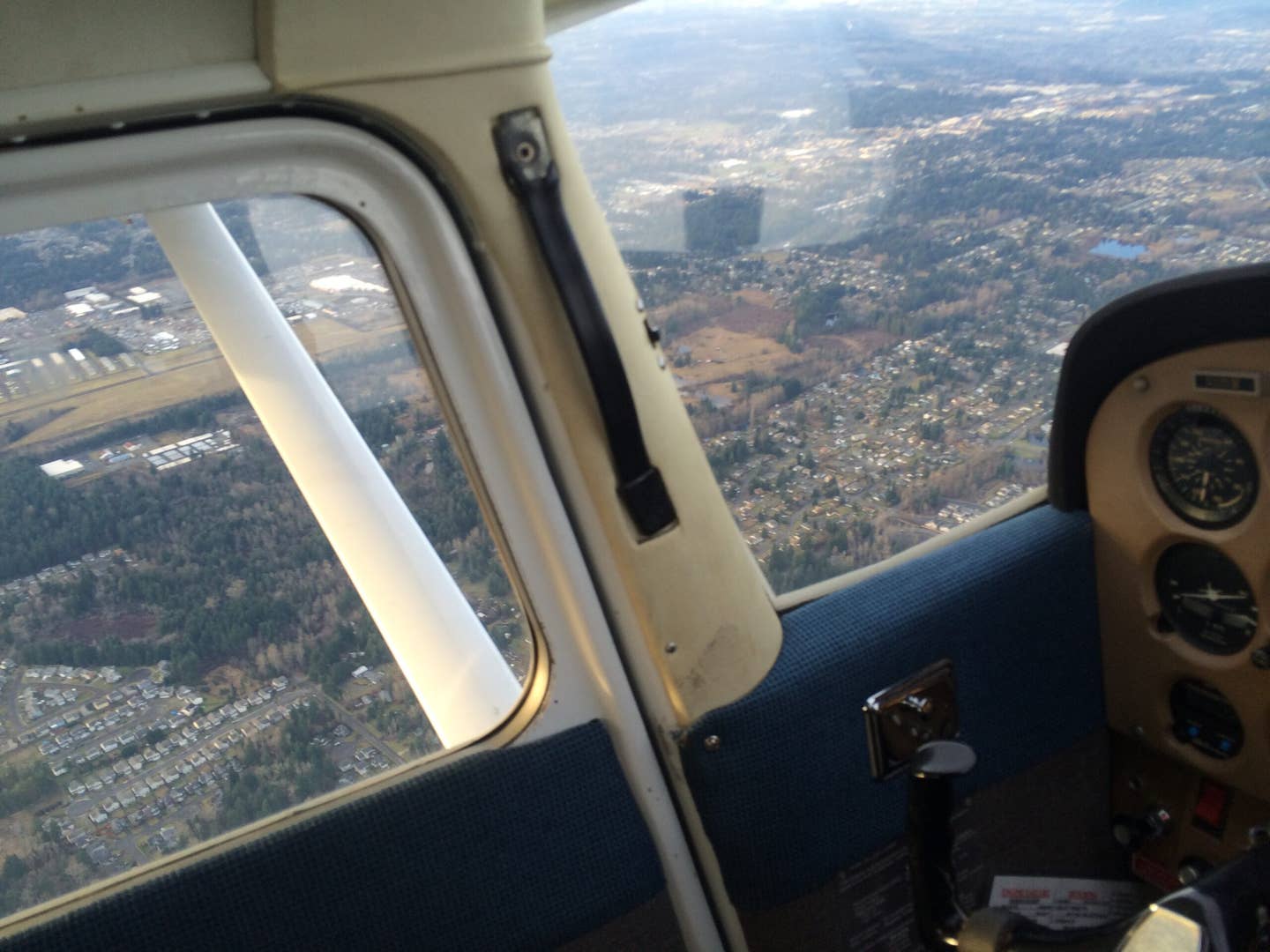Air Force Tests Self-Flying Cessnas
Cessna aircraft equipped with Joby Aviation and Reliable Robotics’ autonomy systems fly more than 6,600 miles over the course of a five-day exercise.
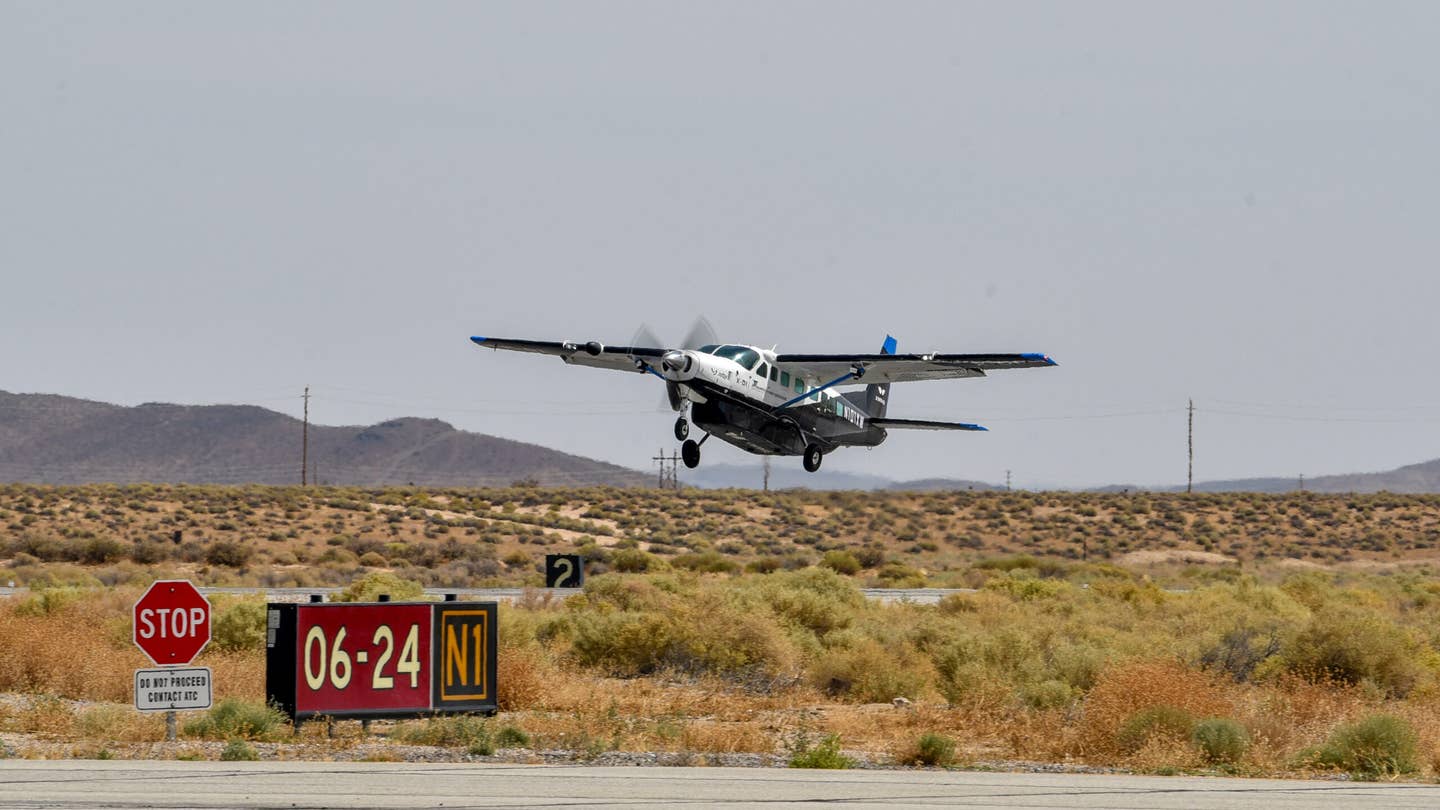
A Cessna 208B Grand Caravan equipped with autonomy software from Joby Aviation takes off from Edwards Air Force Base in California. [Courtesy: U.S. Air Force/Matthew Clouse]
The U.S. Air Force is eyeing defense applications for autonomous flight technology being developed by a pair of private companies.
Earlier this month, Joby Aviation and Reliable Robotics operated self-flying Cessna 208B Grand Caravans during the U.S. Air Force’s Agile Flag 24-3 exercise at Mojave Air and Space Port (KMHV) in California. The goal of the five-day campaign was to weigh how the technology could support the Air Force’s Agile Combat Employment concept, which it describes as a “proactive and reactive operational scheme…to increase resiliency and survivability while generating combat power.”
Airmen from the 23rd Wing at Moody Air Force Base (KVAD) in Georgia and 9th Reconnaissance Wing at Beale Air Force Base (KBAB) in California used technology from Reliable and Joby—which in June acquired autonomous flight provider Xwing—to fly the souped-up Caravan across California and Nevada.
“Previously, we faced a tough choice: either use a cargo aircraft with all the associated expenses or forgo the flight altogether, which created difficult decisions for warfighting commanders,” said Colonel Max Bremer, management officer of the Air Force’s Air Mobility Command Special Access Program. “The return on investment with this technology is significant.”
The Air Force has awarded Reliable, Joby, and Xwing Phase II and III small business innovation research (SBIR) contracts through Autonomy Prime, a technology program within AFWERX, the Air Force’s innovation arm. AFWERX offers a sort of quid pro quo: Manufacturers get a controlled environment where they can perform flight trials and development work, in exchange for early military access to the technology.
Autonomy Prime earlier this year invited both Reliable and Joby to participate in February’s Agile Flag 24-1 exercise.
“We wanted to build on that success by bringing both vendors back for Agile Flag 24-3, which imposes more realistic constraints on the training participants,” said Ian Clowes of AFWERX Prime stakeholder engagement.
Autonomous flight software, in particular, is in high demand.
A Caravan equipped with Reliable or Joby’s technology can taxi, take off, fly up to 1,150 miles, and land with 1,200 pounds of cargo. According to the Air Force, that translates to an operating cost between $1,200 and $1,600 per hour, compared to more than $7,000 for a C-130J Hercules and $20,000 for a C-17A Globemaster.
The autonomous aircraft would be best suited for carrying small cargo, freeing up larger cargo aircraft to transport large parts or weapons.
“Looking ahead, if the Air Force adopts autonomous aircraft for asset transport in forward locations, it will increase sorties and flying hours by reducing delays in aircraft maintenance,” said Staff Sergeant Miguel Sarmiento, aircraft parts store supervisor for the 633rd Logistics Readiness Squadron.
During Agile Flag 24-3, airmen were tasked with deploying fighters to meet a mission objective while contending with “adversary activities” that complicated their goal. For the purposes of the exercise, cargo aircraft had limited ability to deliver the parts needed to keep the fighters flying.
That was no problem for Joby and Reliable, whose technology powered an autonomous Cessna across 47 flights covering more than 6,600 miles while operators watched them from a mobile ground control station. Personnel carried a laptop and satellite communication terminal in a small backpack—no additional infrastructure was needed. Reliable said its flights also included an onboard safety pilot.
“In this exercise scenario, where distance is a significant challenge, this capability is helping us overcome it,” said Colonel Charles Hanson, commander of the 9th Mission Support Group.
Added Captain Mackenzie Thompson, flight commander of the 480th Sortie Generation: “My job is to ensure we have safe and reliable aircraft for the mission. AFWERX has been awesome in helping us transport parts quickly, which has saved us a lot of time and manpower.”
Joby, for example, delivered cargo from Edwards Air Force Base (KEDW) to Southern California Logistics Airport (KVCV) in Victorville, California. The company said it flew more than 3,900 miles between nine military bases and public airports, performing a taxi, takeoff, and landing at each site.
“We look forward to continuing to work with the U.S. Air Force as we further develop the suite of technologies that could enable greater automation or full autonomy, first on the Caravan and then on numerous other aircraft types,” said Maxime Gariel, autonomy lead at Joby.
The company added that it plans to use autonomy to speed up the completion of its AFWERX contract and, potentially, open up new contract opportunities.
According to Reliable, Agile Flag 24-1 was supposed to represent the Indo-Pacific region, with some locations separated by hundreds of miles. The company said it transported critical cargo to eight locations on demand, with leadership from NASA’s Armstrong Flight Research Center also in attendance.
“Autonomy in small platforms reduces risk and opens up the ability to land in more places including damaged runways or unimproved surfaces,” said Bremer.
Prior to the exercise, Reliable obtained military airworthiness and flight readiness approvals for expanded operations. The company’s aircraft-agnostic system is the only full aircraft automation software with an FAA-approved certification plan.
Like this story? We think you'll also like the Future of FLYING newsletter sent every Thursday afternoon. Sign up now.

Sign-up for newsletters & special offers!
Get the latest FLYING stories & special offers delivered directly to your inbox

